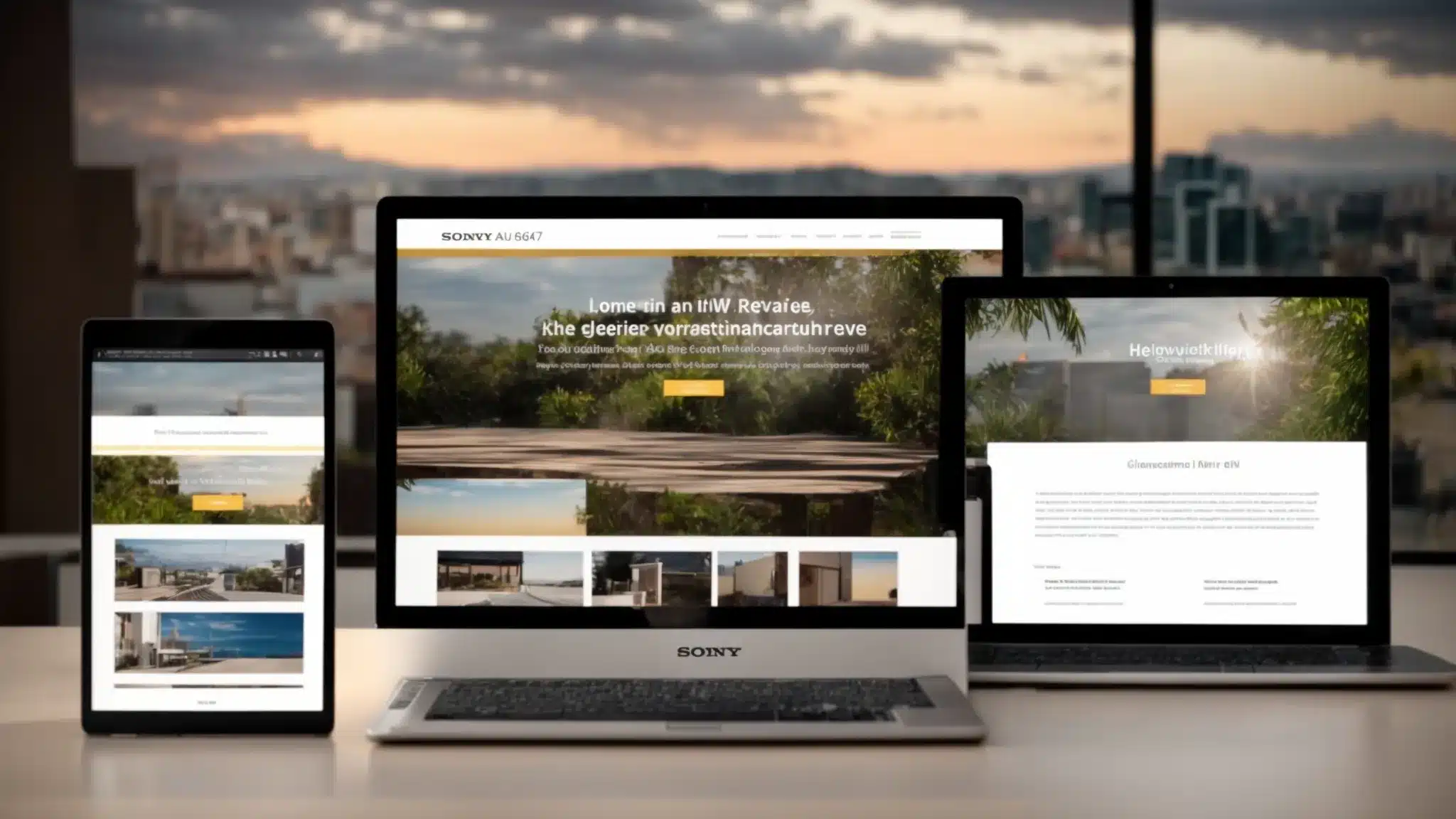Enhancing Your Therapy Website: Key SEO Strategies for Therapists
Are you struggling to make your therapy website visible to potential patients? Many therapists underestimate the importance of SEO, which can drastically affect accessibility to your brand and the clients you serve. In this article, we’ll discuss key strategies for optimizing your content, enhancing technical performance, and leveraging local SEO to connect with nearby families seeking therapy. By implementing these tactics, you’ll increase your site’s authority and improve your reach, ultimately helping more patients access the expert care they need. Let’s tackle these challenges together and elevate your online presence.
Understanding the Importance of SEO for Therapy Websites

Understanding the Importance of SEO for Therapy Websites
Recognizing how search engine optimization (SEO) attracts more clients is vital for therapists. In the psychotherapy field, we face unique SEO challenges, from choosing the right domain name to harnessing local resources like the chamber of commerce. By learning the basics of search engine rankings, we can effectively improve our online visibility and connect with those seeking our services.
Recognize How SEO Attracts More Clients
When we think about how SEO attracts more clients, it becomes clear that understanding this process is critical for therapists. Clients often search online for specific resources regarding issues like eating disorders, and by optimizing our content strategy with relevant keywords, we can significantly enhance our visibility. With the right SEO consulting, we can create tailored content that meets the needs of those seeking our services, thereby fostering a stronger connection with potential clients.
Identify the Unique SEO Challenges in the Therapy Field
As a therapist, I understand the unique SEO challenges we face in our field. First, there’s the need to establish confidence through effective keyword placement in our headlines and content, ensuring we resonate with potential clients’ searches. Additionally, creating landing pages that highlight our services while maintaining our reputation can be difficult, as the language we use must be both approachable and professional to attract the right audience.
Learn the Basics of Search Engine Rankings
Understanding search engine rankings is essential for therapists looking to enhance their online presence. Key elements include managing your Google Business Profile effectively, which helps local clients find services like couples therapy or support for codependency. Additionally, ensuring your citations are accurate across various platforms boosts your credibility and improves overall search visibility, ultimately attracting more potential clients to your practice:
- Manage your Google Business Profile to increase local visibility.
- Focus on optimizing content for relevant keywords such as “couples therapy” and “codependency.”
- Ensure all citations are accurate and consistent across platforms.
Optimizing Your Website Content for Better Reach

To enhance our therapy websites, we must focus on optimizing our content for better reach. This begins with researching and using relevant keywords naturally, which serves to improve our site’s visibility on search engines. Crafting engaging and informative content will provide value to visitors seeking counseling services. It’s also important to update our blog regularly with insights related to mental health, while utilizing effective title tags and meta descriptions to improve usability and attract clients searching for a mental health counselor.
Research and Use Relevant Keywords Naturally
Researching and using relevant keywords naturally is a fundamental strategy for enhancing our therapy websites. I prioritize understanding the language our potential customers use when searching for therapy services; this means integrating keywords like “therapy,” “policy,” and “backlink” into our content in a way that feels seamless and straightforward. By incorporating these terms effectively, I not only improve our site’s visibility but also create a more engaging experience for visitors, which can be further complemented by our email marketing efforts to keep clients informed and connected to our services.
Craft Engaging and Informative Content for Visitors
Crafting engaging and informative content for my therapy clinic’s website is a fundamental part of my marketing strategy. By focusing on long-tail keywords that address specific concerns, such as “anxiety therapy for teens,” I attract the right attention from clients actively seeking tailored services. This approach not only enhances my clinic’s visibility but also fosters trust as I provide valuable insights and resources, making it easier for potential clients to understand how I can help them meet their therapeutic needs.
Update Your Blog Regularly With Valuable Insights
Updating my blog regularly with valuable insights is an essential strategy for ensuring my therapy website ranks well on search engine results pages. By sharing knowledge related to counseling psychology and relevant topics, I not only establish my authority as a therapist but also provide meaningful content that potential clients find useful. This ongoing effort not only keeps visitors engaged but also enhances the overall architecture of my site, making it easier for clients to navigate and discover the support they need.
Utilize Title Tags and Meta Descriptions Effectively
Utilizing title tags and meta descriptions effectively is essential for improving user experience and enhancing visibility in search engine results. By crafting clear and concise title tags that not only capture the essence of my page but also incorporate relevant keywords, I align with search engine algorithms, making it easier for potential clients to find my therapy services. Additionally, well-written meta descriptions serve as a powerful tool in our online advertising efforts; they provide a brief summary that compels users to click on my Google Business listing, ultimately leading to increased engagement and more inquiries about my services.
Enhancing Technical SEO for Improved Performance

To enhance the performance of your therapy website, focusing on technical SEO is essential. We will explore how boosting your site’s loading speed can improve user experience and increase visibility. Ensuring mobile-friendliness across all devices meets the needs of today’s clients, while implementing secure HTTPS protocols builds trust. Lastly, fixing broken links and improving site navigation are crucial steps for effective web design, allowing visitors to easily find coping resources for their mental health.
Boost Your Site’s Loading Speed for User Experience
Boosting your site’s loading speed is crucial for providing a positive user experience on your therapy website. I’ve seen firsthand how a slow-loading site can deter potential clients seeking mental health support, as they often prioritize convenience and efficiency. By conducting research on best practices, such as optimizing images and minimizing code, I’ve enhanced my site’s performance, which not only increases my credibility but also encourages visitors to stay longer and engage with my content on psychology today and physical therapy services.
Ensure Mobile-Friendliness Across All Devices
Ensuring mobile-friendliness across all devices is essential for my therapy website, as a significant number of clients seek support from their smartphones. I recognize that potential clients experiencing pain often find themselves browsing on mobile devices, looking for quick and accessible resources. By avoiding tactics like keyword stuffing, I strive to maintain a clean and straightforward design that improves user experience and enhances my rankings in Google search results, ultimately making it easier for clients to connect with my services and perceive the empathy I have for their needs.
Implement Secure HTTPS Protocols
Implementing secure HTTPS protocols is vital for enhancing my therapy website’s performance and establishing trust with potential clients. As therapists, we understand that clients often seek sensitive support, and an HTTPS connection ensures that their data is protected during their online interactions. By prioritizing security through HTTPS, I not only improve my site’s search engine rankings but also enhance my content marketing efforts, as clients are more likely to engage with my services when they feel safe sharing their information, whether through social media marketing or direct inquiries via my website.
Fix Broken Links and Improve Site Navigation
Fixing broken links and improving site navigation are critical steps in enhancing my therapy website’s performance and user experience. I regularly use tools like Semrush to identify any broken links that may frustrate my target audience when seeking online counseling resources. By ensuring smooth navigation and easy access to valuable content, I foster a welcoming environment that encourages potential clients to engage with my services more effectively.
Building Quality Backlinks to Increase Authority

Building quality backlinks is essential for enhancing my therapy website’s authority and improving its ranking in organic search results. I focus on connecting with industry professionals for guest blogging opportunities, listing my practice in relevant directories like the yellow pages, and encouraging satisfied clients to leave positive reviews. Additionally, participating in community events and sharing my experiences online helps strengthen my online presence.
Connect With Industry Professionals for Guest Blogging
Connecting with industry professionals for guest blogging is a highly effective strategy I recommend for enhancing authority and building quality backlinks for my therapy website. By collaborating with fellow experts in areas like marriage counseling, I not only share insights that resonate with our audiences but also signal credibility to search engines. Through consistent keyword research, I identify topics that align with both my expertise and potential guest bloggers’ interests, ensuring that we provide valuable content that engages readers while also benefiting our site’s web development and SEO goals.
List Your Practice on Relevant Directories
Listing my practice on relevant directories is an effective strategy to enhance visibility and build quality backlinks, which are essential elements of SEO for therapists. By incorporating my practice into respected online platforms, I not only increase the chances of being found by potential clients but also improve my website’s authority, which can lead to a lower bounce rate. This action aligns with best practices in my marketing plan and supports my content creation efforts, making it easier for clients to connect with my services and understand how I can assist them in their therapeutic journeys.
Encourage Satisfied Clients to Leave Reviews
Encouraging satisfied clients to leave reviews is a powerful way to improve your therapy website’s authority and boost local search visibility. I often remind my clients that their testimonials can inform user intent; potential clients searching for services like dialectical behavior therapy are more likely to reach out when they see positive feedback from others. By actively requesting reviews after sessions and guiding clients on how to share their experiences, I facilitate organic link building that enhances my site’s credibility while making it easier for prospective clients to trust my practice.
Participate in Community Events and Share Online
Participating in community events is an effective way for therapists to build quality backlinks and increase authority. By offering workshops on recognizing the signs and symptoms of stress or providing insights on mental health topics, I can position my practice as a valuable resource while naturally incorporating relevant keywords. Sharing these experiences online, whether through blog posts or social media, not only enhances my lead generation efforts but also connects me with individuals seeking help, reinforcing the relevance of my services in the community.
Leveraging Local SEO to Reach Nearby Clients

To effectively connect with nearby clients, I focus on leveraging local SEO strategies tailored for therapists. Optimizing my Google My Business listing, incorporating local keywords, and displaying local testimonials enhance my online presence. Additionally, using location-based schema markup helps improve my site’s analytics—important aspects we address in our Core Marketing System related to therapist SEO and building trust in services like cognitive behavioral therapy.
Optimize Your Google My Business Listing
Optimizing my Google My Business listing has been instrumental in attracting local clients to my therapy practice. By ensuring that my profile is complete with accurate contact information, business hours, and a compelling description of my services, I effectively enhance my visibility in local search results. This attention to detail not only helps potential clients find me more easily but also builds trust, as they see I am responsive to their needs and dedicated to providing support in their journey towards mental wellness.
Include Local Keywords in Your Content
Including local keywords in my content has significantly improved my ability to attract nearby clients. I focus on integrating phrases that reflect the specific services I offer, like “anxiety therapy in [my city]” or “couples counseling near me.” This approach not only helps with local search visibility but also aligns my practice with the needs of individuals who are actively seeking support in their community, making it easier for them to connect with my services.
Collect and Display Local Testimonials
Collecting and displaying local testimonials has been an effective strategy for my therapy practice, significantly enhancing my credibility and local SEO efforts. When potential clients see positive feedback from individuals in their community, it creates trust and encourages them to reach out for support. I actively ask my clients for testimonials after our sessions, guiding them on how to express their experiences, which not only highlights the quality of my services but also optimizes my online presence by incorporating local keywords that resonate with those searching for therapy in our area.
Use Location-Based Schema Markup
Using location-based schema markup is an effective way to enhance my therapy website’s visibility in local search results. By implementing structured data, I help search engines better understand my practice’s location and services, which can lead to increased traffic from nearby clients actively seeking therapy options. This technique not only improves local SEO but also ensures that my practice stands out amongst others, making it easier for potential clients to find the help they need in our community.
Monitoring and Adapting Your SEO Strategies Over Time

To truly enhance my therapy website’s effectiveness, I focus on monitoring and adapting my SEO strategies over time. This involves tracking website analytics to measure success and adjusting my approach based on performance data. I also stay updated with the latest SEO best practices and trends while continuously testing and refining my methods. Each of these elements is essential for maintaining and improving my online visibility.
Track Website Analytics to Measure Success
Tracking website analytics is vital for understanding the effectiveness of my SEO strategies. By utilizing tools like Google Analytics, I can monitor key metrics such as visitor behavior, conversion rates, and traffic sources. This data helps me identify which aspects of my therapy website are performing well and which areas need improvement, allowing me to make informed adjustments that align with clients’ needs and enhance my online presence.
Adjust Your Strategy Based on Performance Data
Adjusting my SEO strategy based on performance data is crucial for maintaining the effectiveness of my therapy website. After analyzing metrics from tools like Google Analytics, I can identify which keywords are driving traffic and which pages are underperforming. For instance, if I notice that my blog posts about anxiety therapy are attracting more visitors, I prioritize creating additional related content to further engage potential clients and improve my site’s overall search visibility:
| Action | Description | Expected Outcome |
|---|---|---|
| Analyze metrics | Use tools like Google Analytics to assess which pages and keywords perform best. | Increased understanding of client interests and behaviors. |
| Identify underperforming content | Find pages with low traffic or high bounce rates for improvement. | Enhanced user experience and longer site visits. |
| Focus on high-performing topics | Create more content around successful keywords or topics. | Increased traffic and potential client inquiries. |
Stay Updated With SEO Best Practices and Trends
Staying updated with SEO best practices and trends is essential for the ongoing success of my therapy website. I regularly follow industry blogs and participate in webinars to learn about changes in search algorithms and effective strategies. By adjusting my approach based on the latest insights, I ensure that my website remains competitive, leading to increased visibility and connection with clients seeking therapy services.
Continuously Test and Refine Your Approach
Continuously testing and refining my SEO approach is a critical component of improving my therapy website’s performance. I regularly assess the effectiveness of my strategies by analyzing website traffic and user interactions, allowing me to identify which content resonates with potential clients. By remaining flexible and open to adjustments, I can enhance my keyword use and ensure that my site meets the evolving needs of those seeking therapeutic support.
Conclusion
Enhancing your therapy website through effective SEO strategies is crucial for attracting and connecting with clients. By optimizing your website content, improving technical SEO, and leveraging local strategies, you can significantly increase your online visibility and authority in the mental health field. Regularly updating and refining your approach ensures that you remain competitive in an ever-changing digital landscape. Ultimately, implementing these key strategies empowers you to reach more clients and provide the vital support they need.
